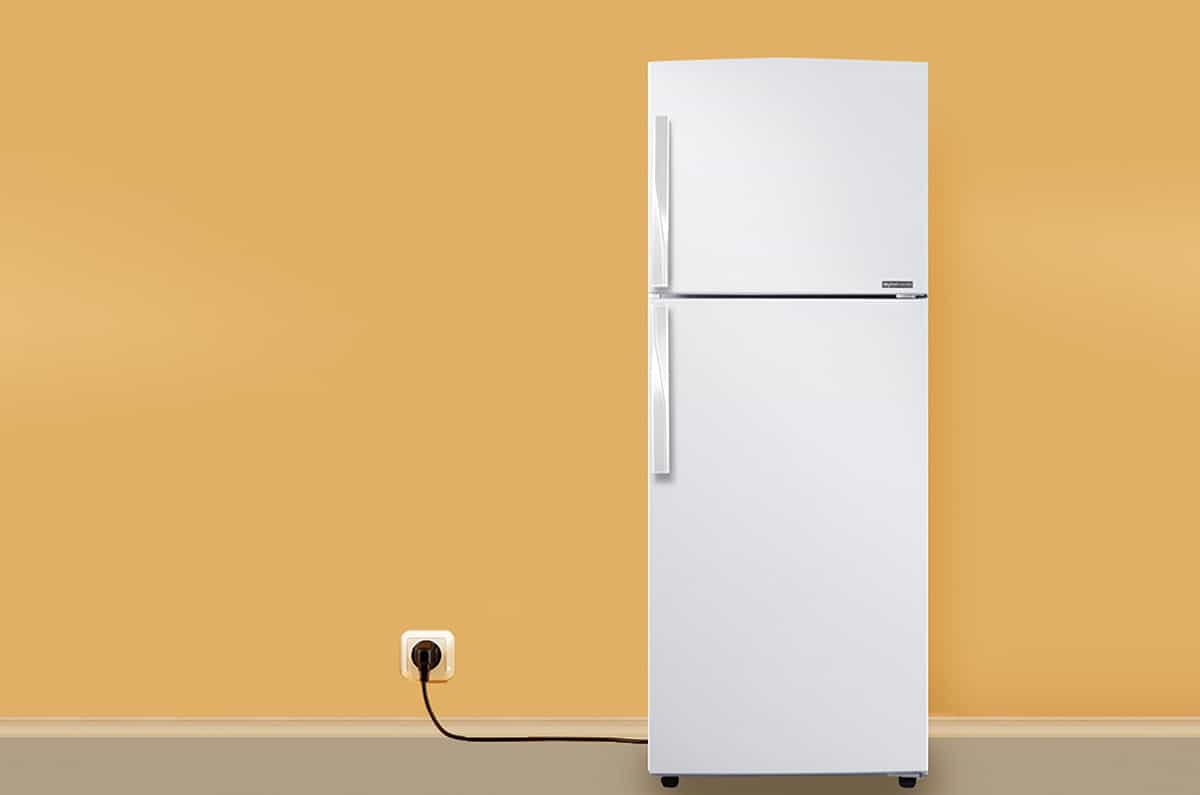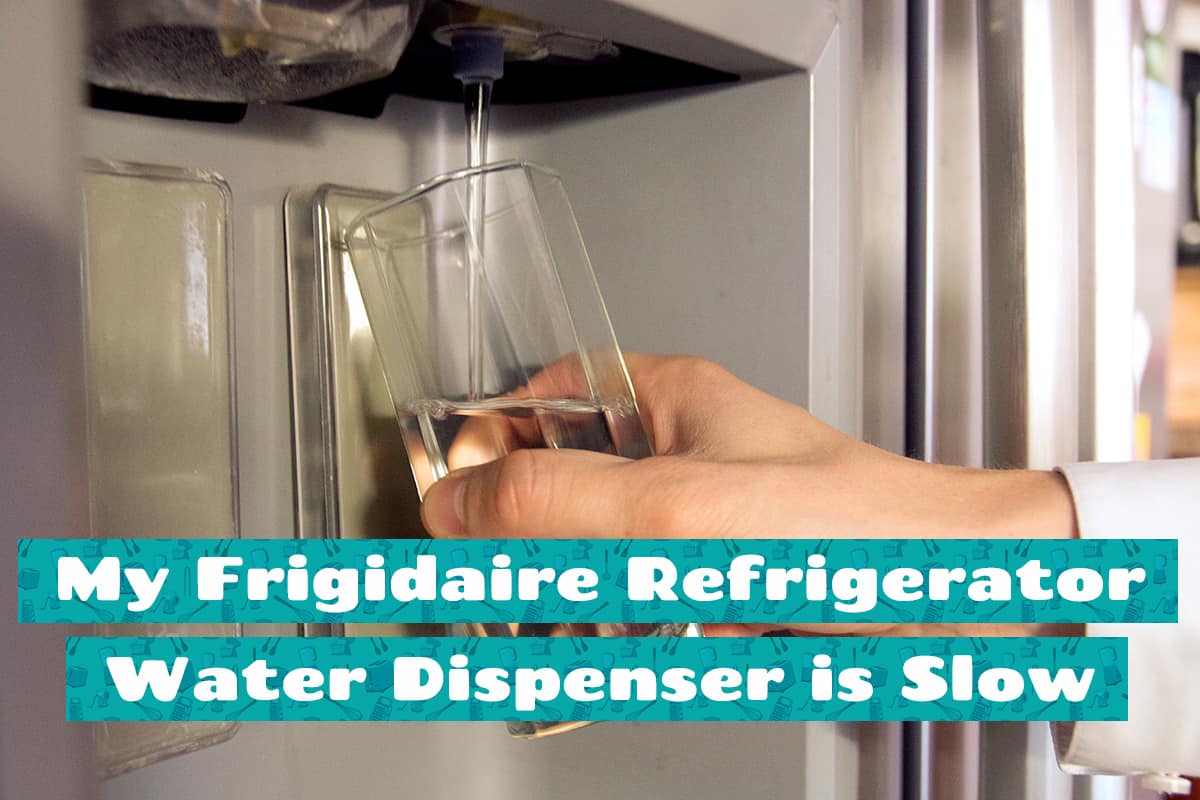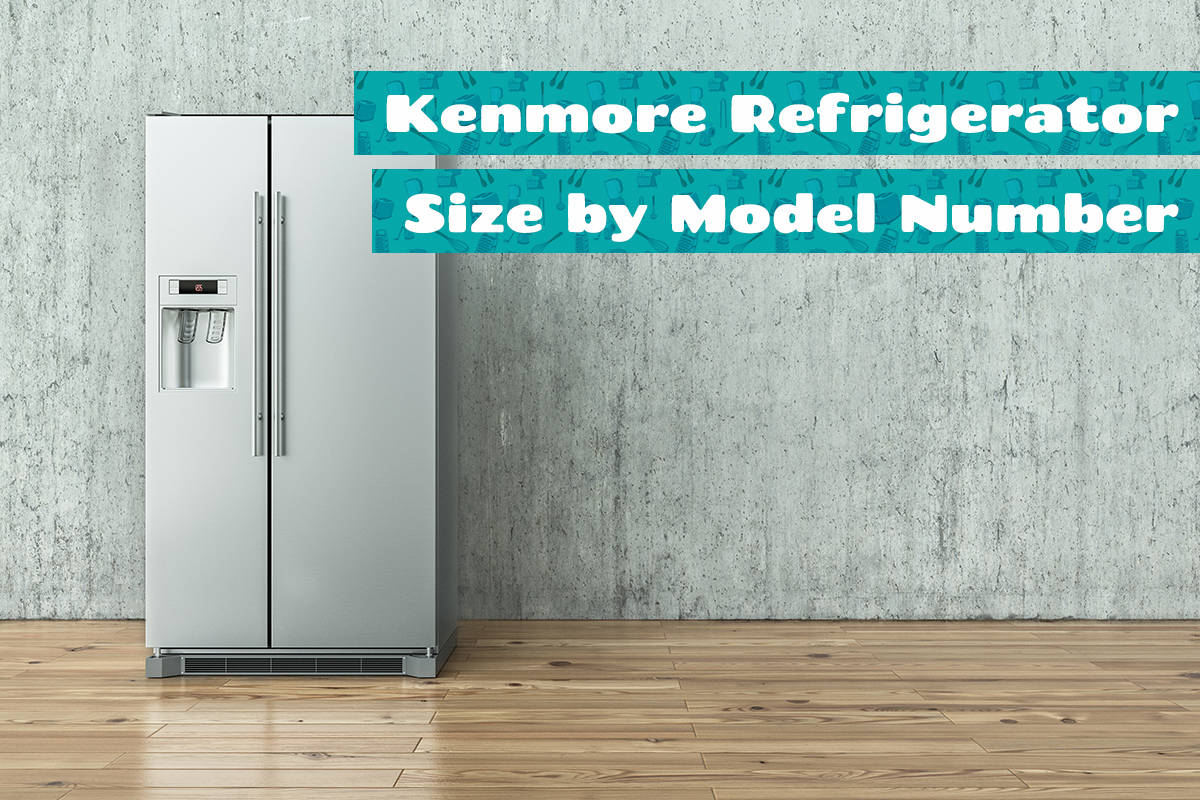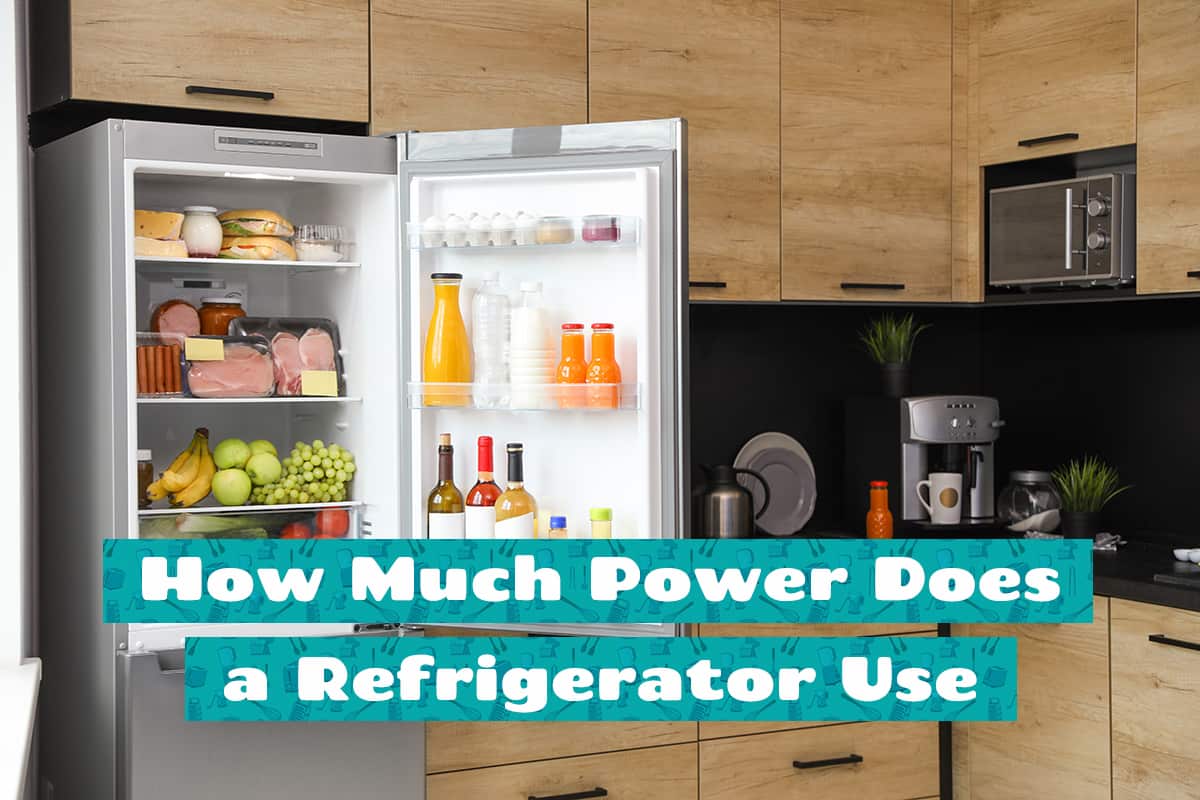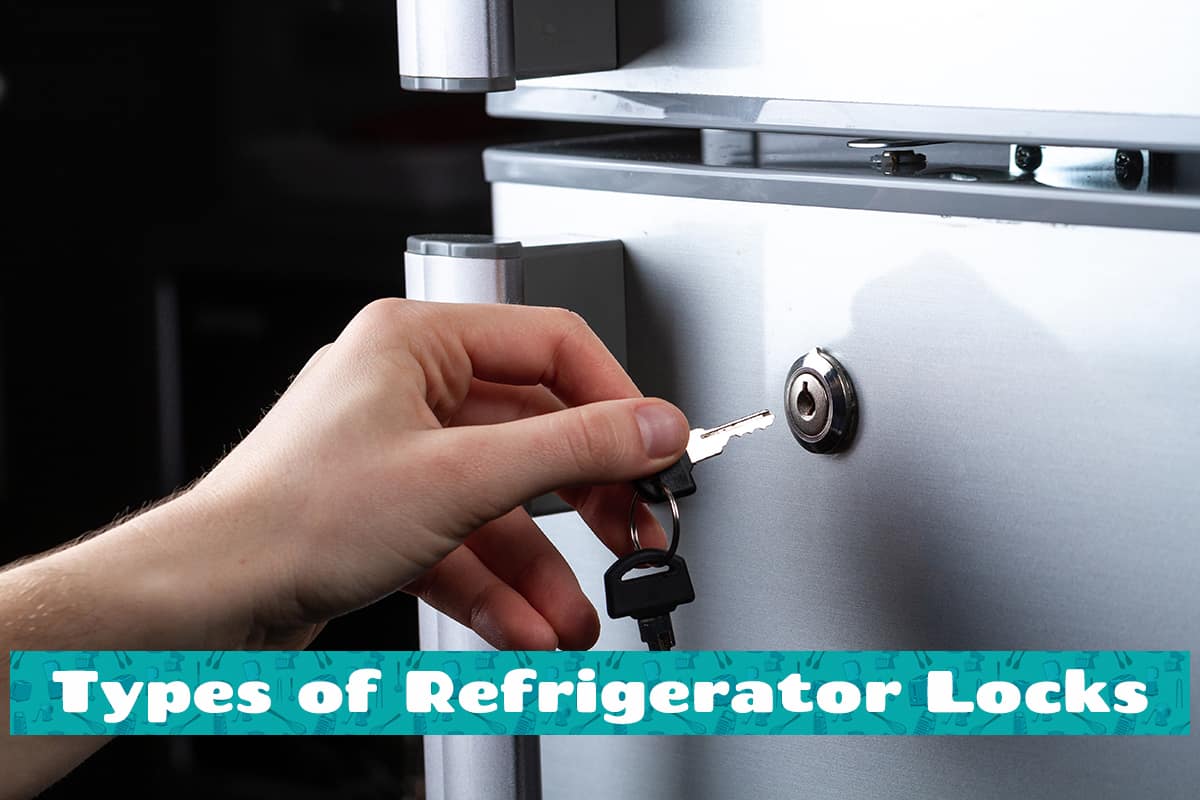Refrigerators preserve food and beverages at optimal temperatures. But as integral as they are to our daily lives, their continuous operation raises a question that may not be so straightforward: Should you unplug a refrigerator when it’s not in use?
No, you don’t need to unplug your fridge when it’s not in use, but there may be circumstances where it could be beneficial. It depends on a multitude of factors, including:
- Duration of non-use
- Energy savings vs. food spoilage risk
- Environmental considerations
- Condition of the refrigerator
In this guide, we’ll dive deeper into these factors and more. We’ll explore how your refrigerator’s energy usage impacts your utility bills, the effects of unplugging your appliance and food, and alternative energy-efficient solutions.
Evaluating Energy Consumption and Savings
Refrigerators are among the most energy-hungry appliances in your home, running 24/7 to keep your food fresh. As such, it makes sense if you’re worried about this vital appliance using up all your energy for what might seem like no apparent reason.
How Much Energy Does a Fridge Use?
Your refrigerator’s energy consumption depends on various factors.
- Size: Larger refrigerators and side-by-side models typically use more power than smaller or top-freezer models.
- Age: Older models are generally less energy-efficient than modern ones that comply with the latest energy standards.
- Condition: A well-maintained unit with clean coils, a sealed door, and a functioning thermostat will use less energy.
- Settings: For example, setting the temperature too low or frequently opening the door can increase energy consumption.
- Location: A fridge placed in a hot garage or near a heat source like an oven will need to work harder to maintain its temperature, using more energy.
Potential Savings from Unplugging
The potential energy savings from unplugging your refrigerator will depend on the abovementioned factors. However, refrigerators are designed for continuous use, and modern models are quite energy-efficient.
To calculate potential savings, you’ll need to know your refrigerator’s energy usage (available in the user manual or on the energy guide label), the cost of electricity in your area, and the duration the refrigerator will be unplugged.
To illustrate, let’s assume you have a standard upright fridge-freezer appliance with a wattage rating of 700 and that you pay the national average of $0.23 per kilowatt-hour. You can input these factors in the formula provided in our guide “How Much Power Does a Toaster Oven Use?”
Let’s calculate how much you pay per day:
- Cost = ((Watts × Hours) ÷ 1000) × $0.23
- Cost = ((700 × 24) ÷ 1000) × $0.23
- Cost ≈ $3.86
Per month, that would be about $115.80 for your fridge alone. Now, assuming you want to unplug your fridge for eight hours every day, you can reduce your daily electricity bill by:
- Cost = ((700 × 8) ÷ 1000) × $0.23
- Cost ≈ $1.29
Per month, unplugging your fridge for one-third of the day would save you about $38.70.
Take note that these are only rough estimates—the amount you save will, once again, depend heavily on the factors mentioned in the previous section.
The Effect on Your Refrigerator
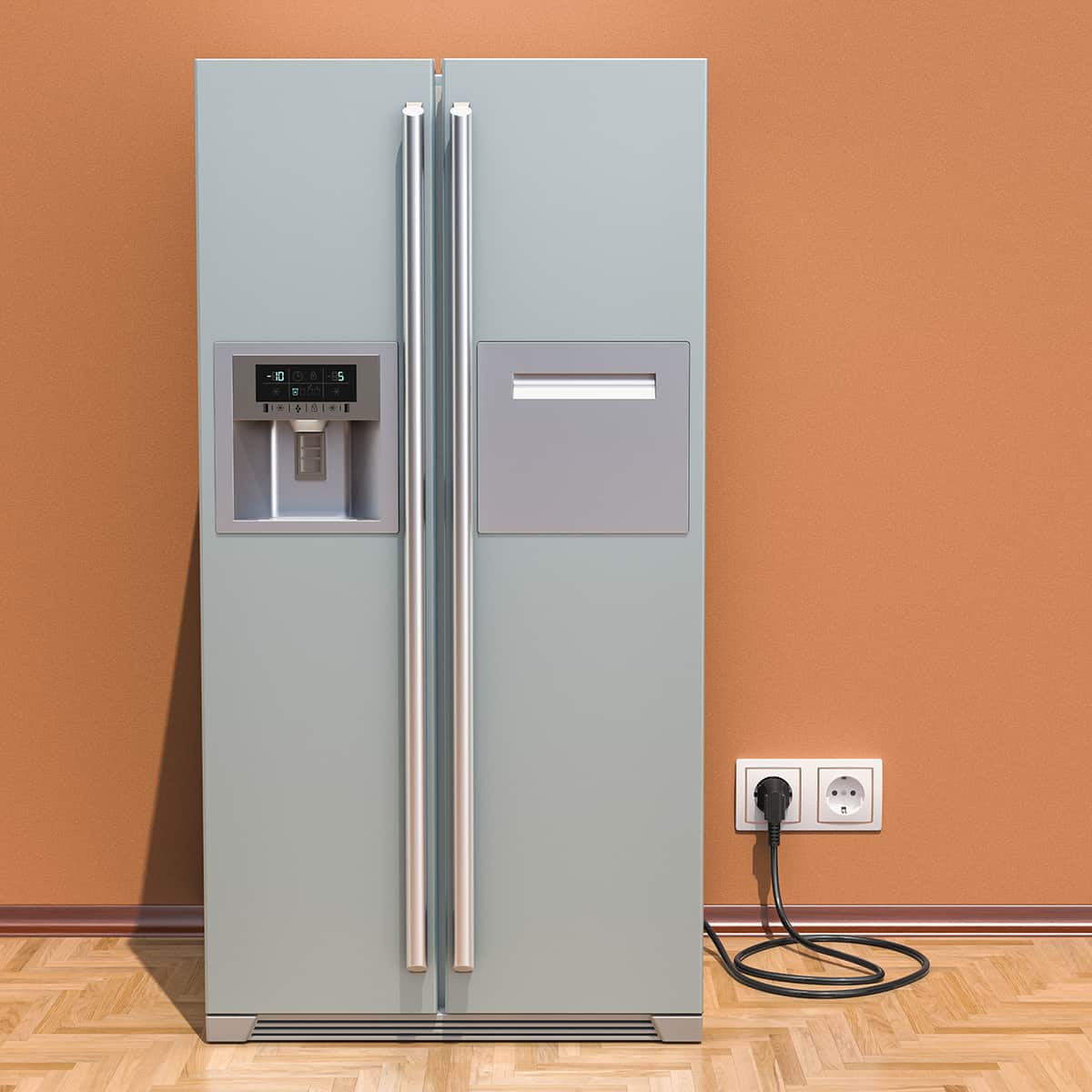
Beyond energy considerations, unplugging your refrigerator can have significant implications for the appliance itself.
What happens to your refrigerator when you unplug it?
Refrigerators rely on a continuous power supply to maintain the low temperatures necessary for preserving food. When you unplug a refrigerator, a few things happen:
Defrosting and Compressor Health
Over time, a refrigerator’s cooling elements can accumulate frost. Normally, this is managed by the refrigerator’s defrost cycle. The refrigerator will begin to warm when unplugged, causing the frost to melt and potentially lead to water leakage.
On re-plugging, the compressor, which is the heart of your refrigerator’s cooling system, will have to work harder to bring the temperature back down. This can cause unnecessary wear and strain on the compressor and may decrease its lifespan. Some refrigerators may also have difficulty restoring the correct temperature if unplugged for a long period.
Refrigerator Lifespan
While it might seem like unplugging your refrigerator could extend its lifespan by reducing usage, this may not always be the case. Regular warming and cooling periods can place additional strain on the refrigerator’s components, potentially leading to more frequent repairs and a shorter overall lifespan.
The Impact on Stored Food
The food stored in your refrigerator is another key consideration. A refrigerator’s main role is to keep food at safe temperatures to prevent bacterial growth and maintain food quality.
Many perishable foods like dairy, meat, and certain vegetables need to be kept at or below 40°F (4°C) to prevent bacterial growth. When you unplug your refrigerator, the internal temperature will rise, potentially making these foods unsafe to eat. Even non-perishable items can be affected by changes in temperature. For instance, condiments can lose their flavor, and beverages can lose their chill.
If you’re considering unplugging your refrigerator, think about the risk to the food stored within it. This depends on how long the refrigerator will be unplugged, the type of food stored, and whether you have alternative storage options.
Alternative Solutions
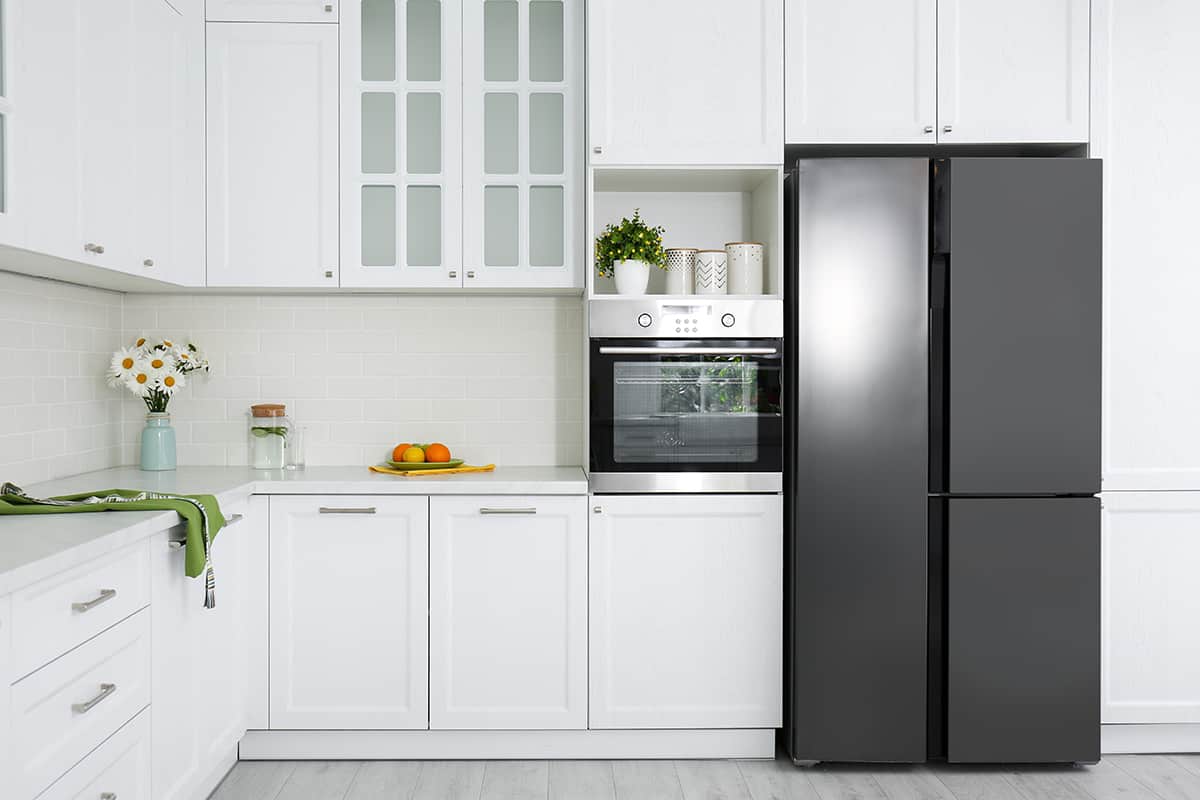
While unplugging your refrigerator may save energy, the potential negative effects on the appliance and the food it stores might make you think twice. Fortunately, there are several alternative solutions that can help you reduce energy usage without unplugging your refrigerator.
Energy-Efficient Refrigerator Models
Purchasing an energy-efficient model can be an investment, as these appliances tend to be more expensive upfront. However, the energy savings over the refrigerator’s lifespan can more than offset the initial cost.
Energy-efficient refrigerators are designed to use less electricity, which can result in significant savings over time. They often have features like better insulation, more efficient cooling systems, and smart technologies that adapt cooling to your usage patterns.
When considering an energy-efficient model, look for the ENERGY STAR label. This indicates the refrigerator meets or exceeds energy efficiency standards set by the Environmental Protection Agency. Also, take into account the refrigerator’s size and type, as larger and side-by-side models generally use more energy.
Tips to Reduce Refrigerator Energy Consumption Without Unplugging
- Adjust the Temperature: Set your refrigerator temperature to 35-38°F (1.6-3.3°C) and your freezer to 0°F (-18°C). This is sufficient to keep food safe without overcooling.
- Keep It Full: A full refrigerator retains cold better than an empty one. If it’s not full, you can fill empty spaces with water bottles.
- Cover Your Foods: Uncovered foods release moisture, making the compressor work harder.
- Regular Maintenance: Keep the coils clean, ensure the door seals are tight, and defrost the freezer if frost builds up.
- Cool Foods Before Storing: Let hot foods cool before placing them in the refrigerator to reduce the cooling load.
- Organize and Rotate Your Foods: Know where everything is so the door is open for less time, and rotate foods so nothing spoils and wastes the energy used to cool it.
FAQs
1. Does unplugging a refrigerator damage it?
Unplugging a refrigerator can potentially damage it. When unplugged, the compressor needs to work harder to cool down again once power is restored, leading to unnecessary wear and strain. This can decrease the refrigerator’s lifespan and may require more frequent repairs.
2. Is it safe to unplug a refrigerator for long periods of time?
It’s generally safe to unplug a refrigerator for long periods, but consider the food stored inside. If the fridge is full of perishable items, they might spoil. Also, upon re-plugging, the fridge will work harder to reach the right temperature, possibly causing wear on the compressor.
3. Does unplugging a refrigerator reset it?
Yes, unplugging a refrigerator for a few minutes and then plugging it back in can sometimes reset the appliance’s electronic control board, potentially resolving minor technical issues. For serious problems, call a professional.
